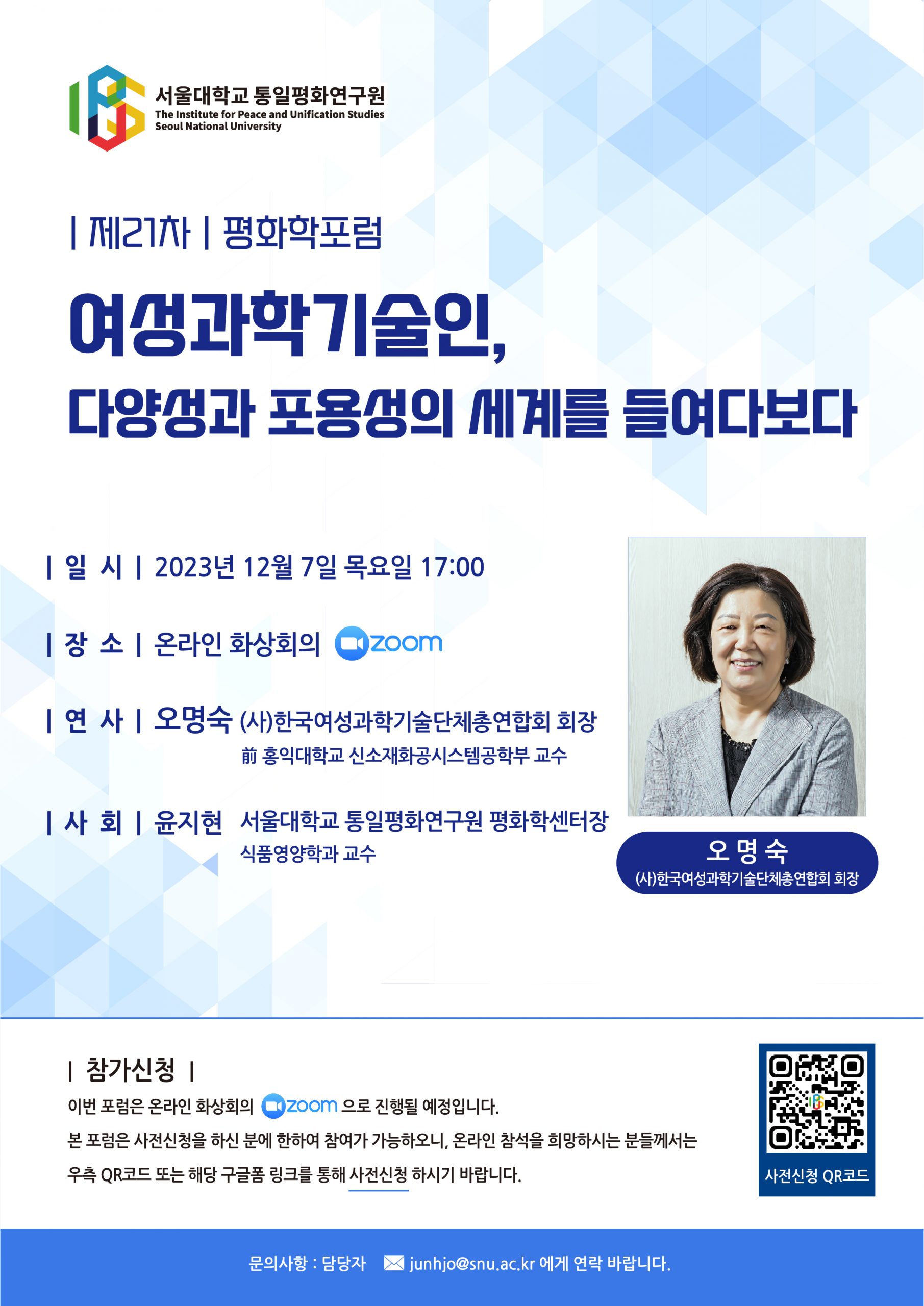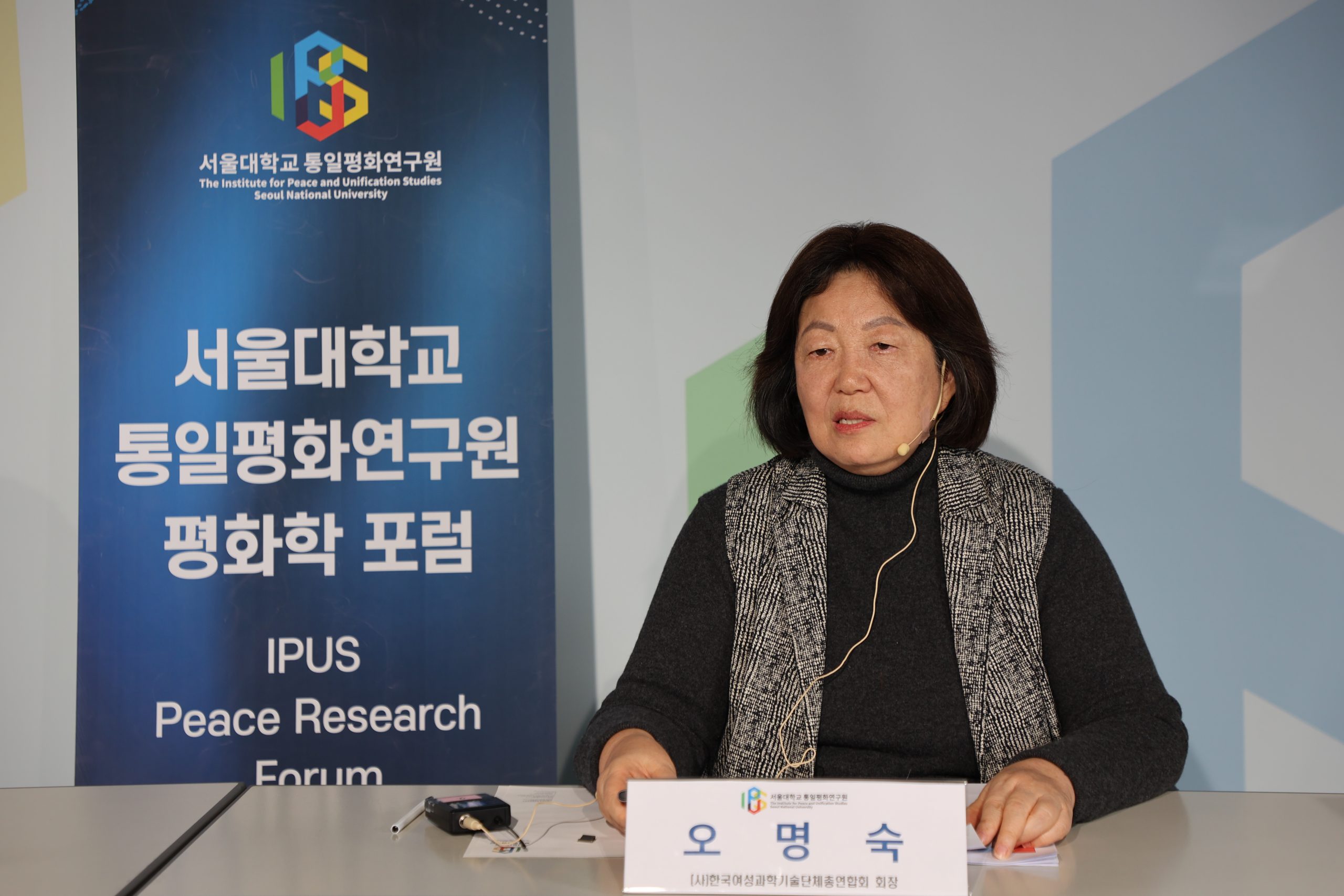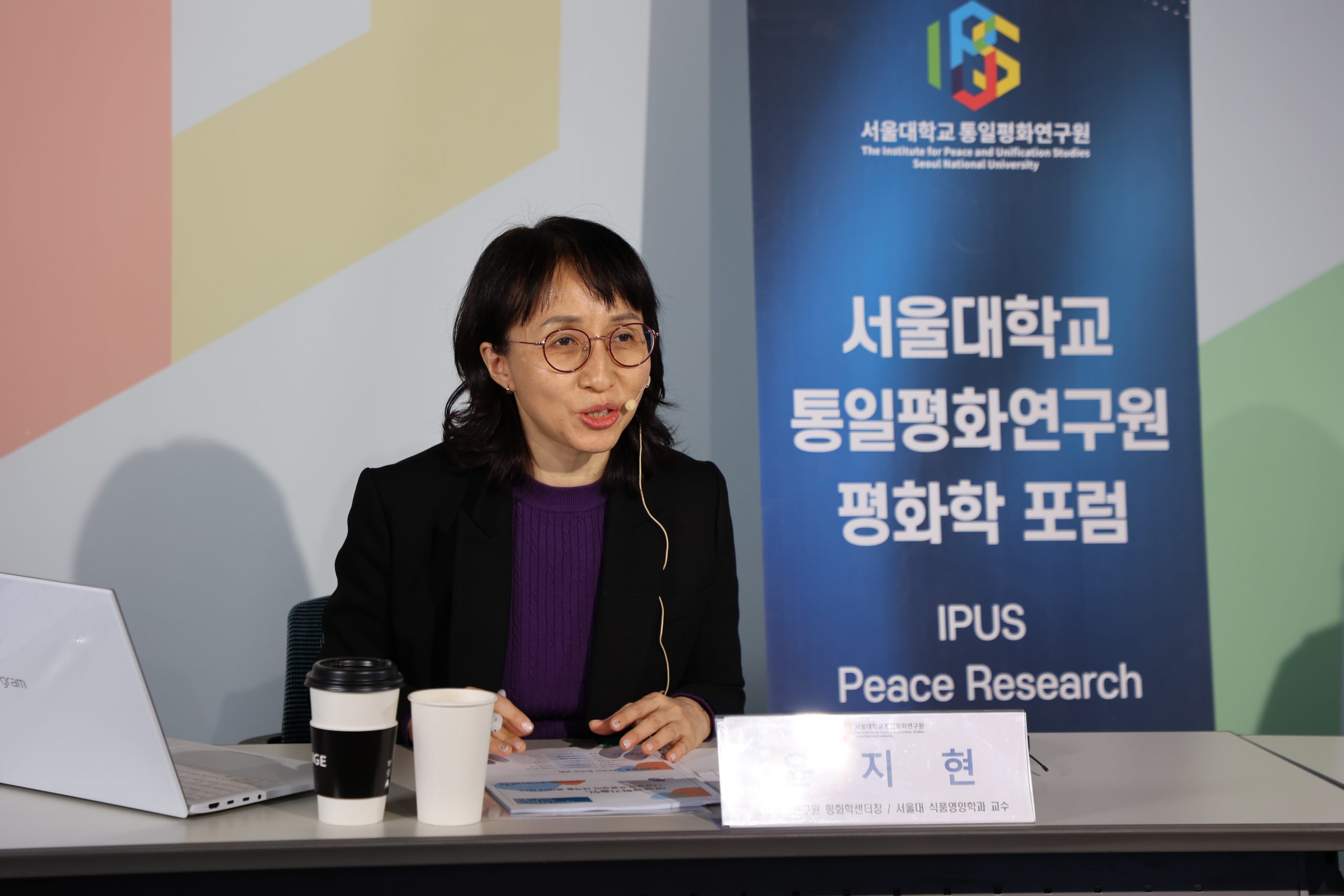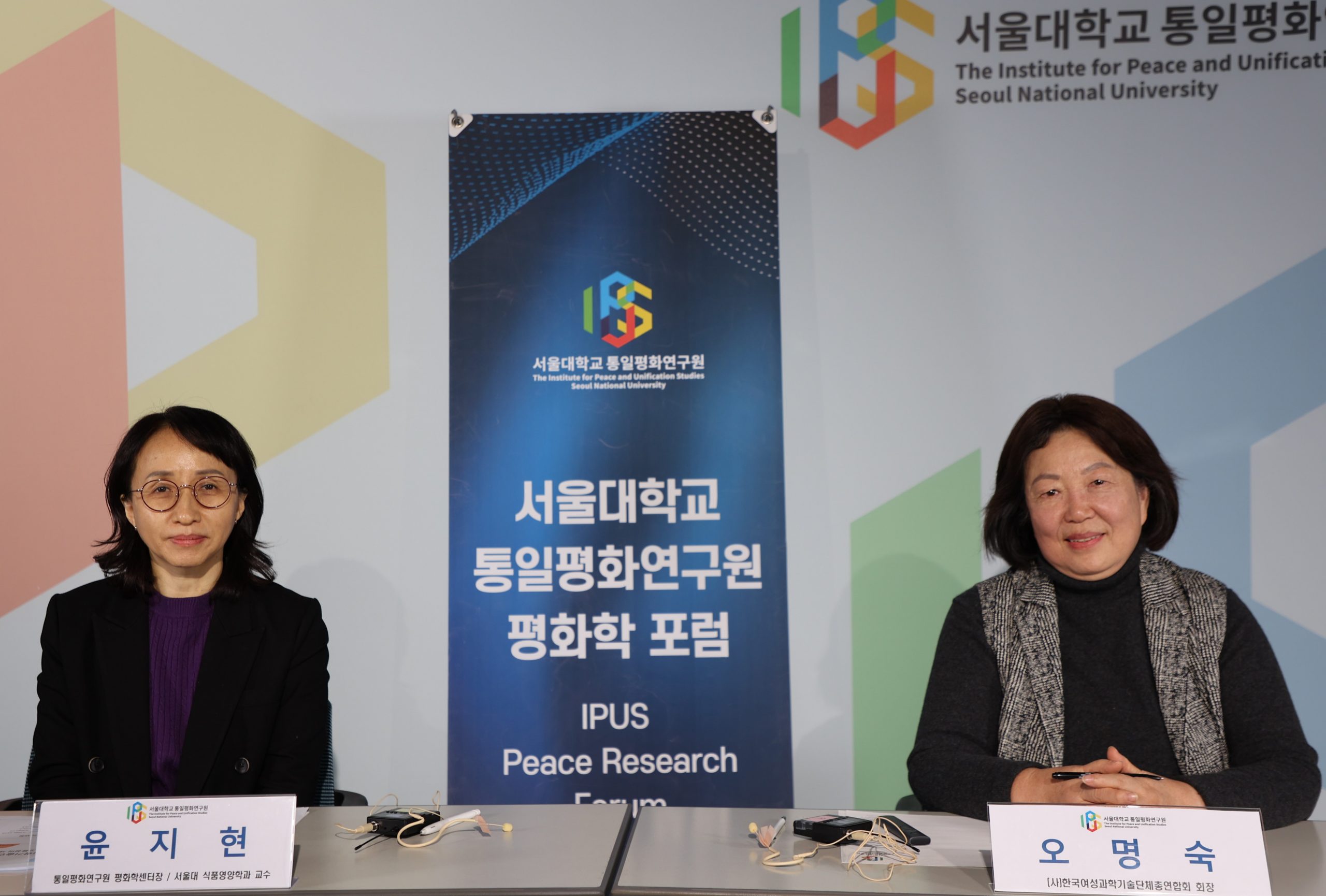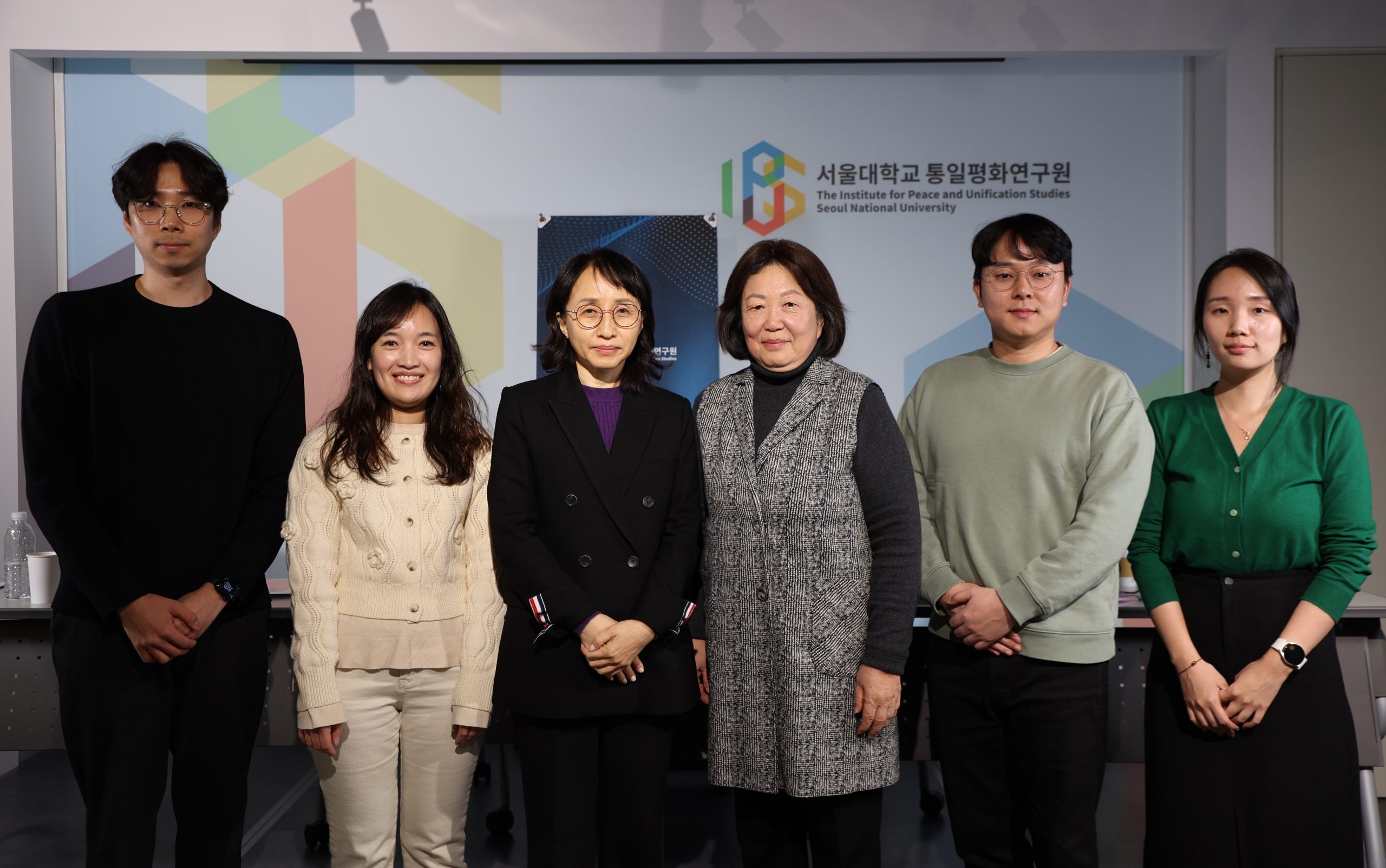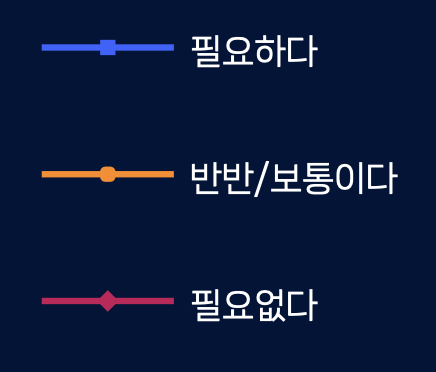[21st Peace Studies Forum] Women in Science and Technology, Looking into the World of Diversity and Inclusion
- Date&Time: Thursday, December 7, 2023, 17:00 –18:20 (KST)
- Venue: Online video conference (ZOOM)
- Moderator: Yoon, Ji-hyun (Head of Center for Peace Studies, IPUS at SNU)
- Speaker: Oh, Myong-sook (President, Korea Federation of Women’s Science and Technology Associations)
- Topic: Women in Science and Technology, Looking into the World of Diversity and Inclusion
The Institute for Peace and Unification Studies at Seoul National University(IPUS at SNU) hosted the 21st Peace Studies Forum on Thursday, December 7, 2023, under the theme “Women in Science and Technology, Looking into the World of Diversity and Inclusion,” with Dr. Oh Myongsook, President of the Korea Federations of Women’s Science and Technology Associations(KOFWST). The forum was moderated by Yoon Ji-hyun, Head of the Center for Peace Studies of the IPUS at SNU, who opened the forum with a welcome speech.
At the forum, President Oh Myong-sook sought to convey the importance of social values of diversity and inclusion for a peaceful society. “Korea has grown rapidly in many areas over the past 20 years, but the position of women has not changed much,” she said, noting that the World Economic Forum’s Gender Gap Index has dropped six places to 105th from 99th last year, with the lowest ranking being in the Economic Participation and Opportunity category, where Korea ranks 114th out of 146 countries. “Korea outperformed even the lowest-ranked country, the United States, with a 19% gap in the economic participation rate, and ranked last in the gender pay gap,” Oh said, noting that Korea’s glass ceiling index has been the lowest among OECD countries for 11 years. “Specifically, the gender gap in science and technology is high, with the proportion of female students in universities and graduate schools decreasing as they progress to master’s and doctoral degrees, and the proportion of female professors is even lower,” Oh said. “The proportion of female employees in research and industrial technology is also low compared to other developed countries, and the proportion of female executives in science and technology organizations is particularly low in engineering.”
“According to interviews with female employees conducted by the Women’s Division, male-centered work environments, sexist personnel management systems, and personnel disadvantages after parental leave were cited as reasons for this phenomenon,” said Oh, who explained that these are common features shared by many countries, as evidenced by statistics from Australia. “In Korea, these issues are a matter of changing social perceptions, given that legal and institutional mechanisms are in place, such as the Constitution, Labor Standards Act, Employment Equality Act, and the Act on Fostering and Supporting Women in Science and Technology,” Oh said. “Of course, efforts to improve the gender gap are being made in the right direction, such as amending the Capital Market Act, shifting the paradigm of women’s policies, and expanding ESG management.”
“Currently, the 11th KOFWST is making various efforts under the banner of spreading a culture of diversity and inclusion,” said Oh Myong-sook, adding that diversity and inclusion are the key to innovation. “Diversity increases creativity as well as available cognition and approaches to problem-solving,” Oh said, noting that diverse groups were less confident in their decisions but more accurate, and that demographic diversity increases the diversity of perspectives and experiences, leading to better performance than homogeneous groups. “Inclusion is the intentional fostering of a workplace where everyone is treated equally, has equal opportunities, is valued, and can contribute to the success of the organization,” she said. “The benefits of inclusion include better decision-making by considering diverse perspectives, which leads to increased productivity and greater potential for creativity and innovation.” “Gender bias can be divided into first- and second-generation bias, the latter being unconscious and subtle, and can be caused by cognitive limitations, limited information, and complexity,” Oh said, adding that it has the effect of accumulating small disadvantages that add up to large ones.
“What we can do is ‘be aware of our biases, use structure and criteria, evaluate subtle messages, and hold everyone accountable,'” said Oh. “We need to have allyship to overcome the problem of current diversity and inclusion programs that focus on changing the disadvantaged and relatively little on changing the privileged,” she said. “Allyship is an active and consistent effort to use privilege and power to support and advocate for the marginalized, which can be a powerful force over time,” Oh said, explaining that it can be broken down into personal, interpersonal, and structural actions. Specifically, President Oh emphasized the importance of allyship and the importance of practicing it at three levels: individually, by using inclusive language and challenging one’s own biases; interpersonally, by reducing interruptions, giving credit, and inviting more voices; and structurally, by distributing speaking time, ensuring the accessibility of the meeting environment, and establishing a system for distributing ‘office housework’.

